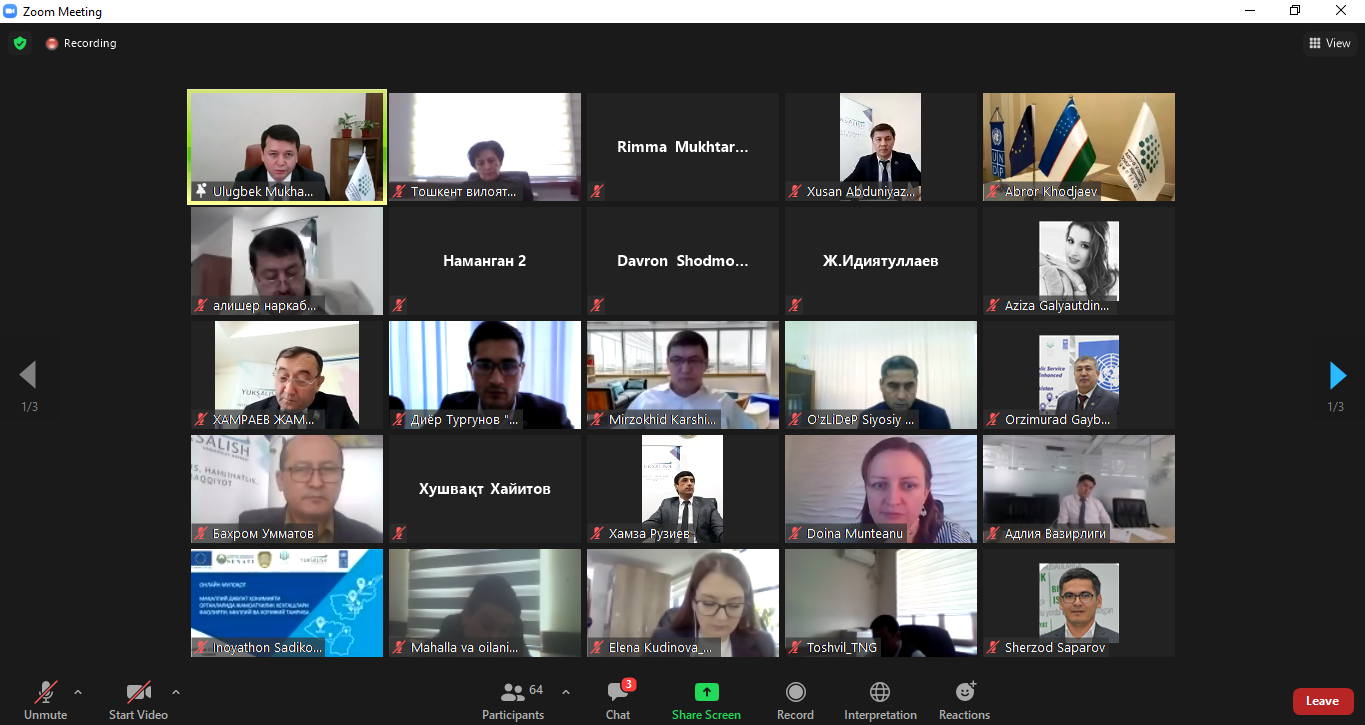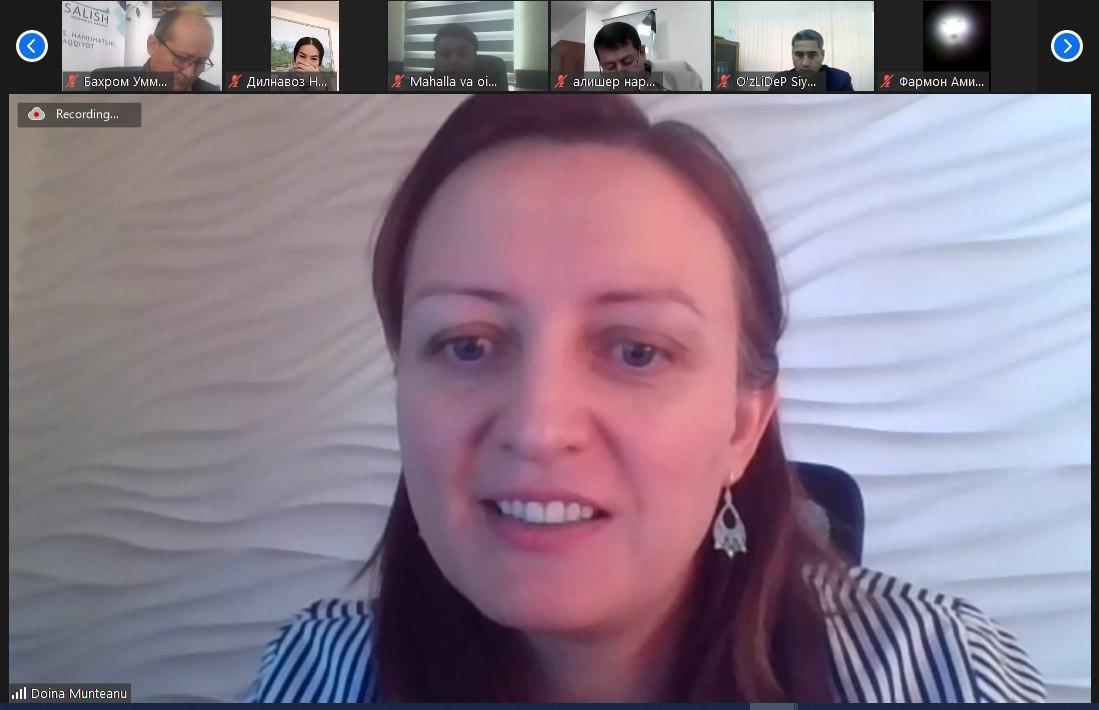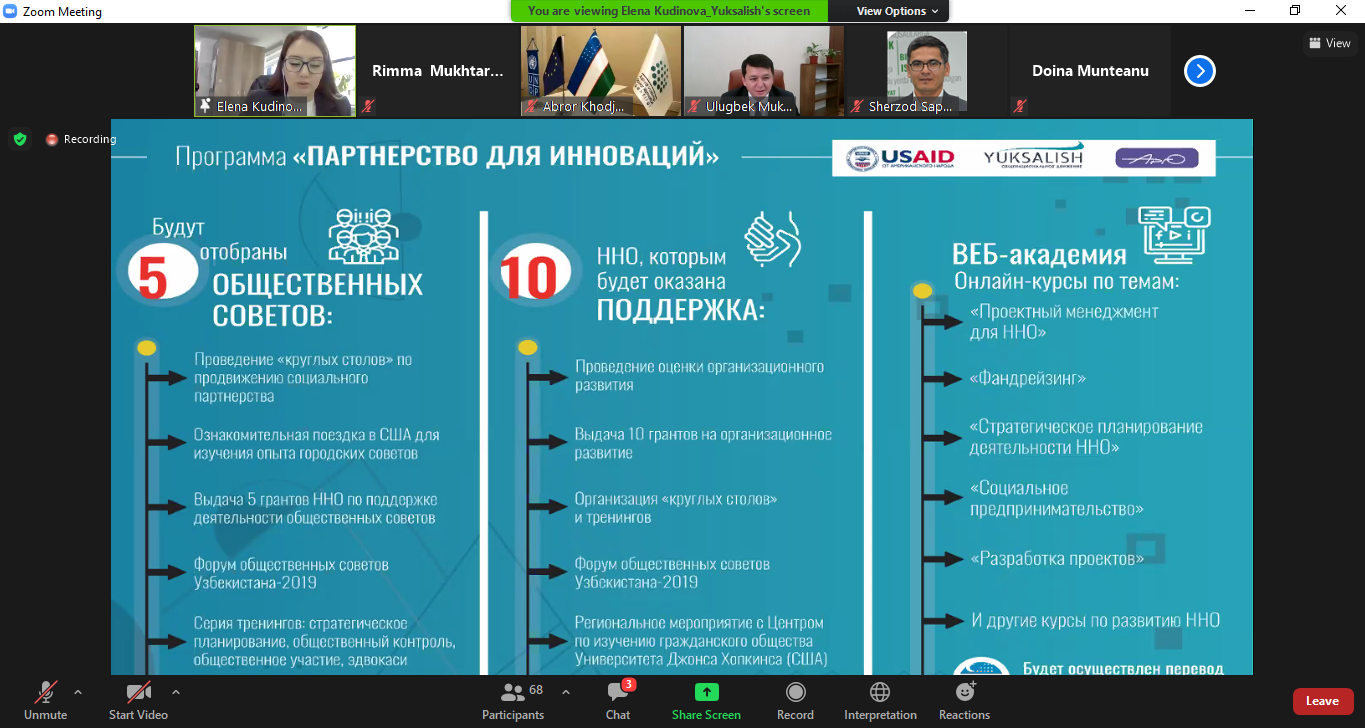According to the results of surveys conducted in March, 56% of respondents in the regional population believed that “representatives of the public are not sufficiently involved in the government”. There was a general view that public councils, which would have been created throughout all state structures by 2018, would have played an important role in furthering this engagement.

On October 27, 2020, a webinar on “Public councils at Local Government Bodies: National and International Experience” was held by the Senate of the Oliy Majlis of the Republic of Uzbekistan, the ʻYuksalish’ National Movement, the Ministry of Justice, and an ongoing joint project between the Public Services Agency under the Ministry of Justice and the United Nations Development Program in Uzbekistan (“Improved public service delivery and enhanced governance in rural Uzbekistan”), funded by the European Union. At the webinar, participants exchanged views and experiences, and discussed problems and possible solutions pertaining to public councils.
In addition to delegations from the five event sponsors, the event was attended by members of the Council of Ministers of the Republic of Karakalpakstan, khokimiyats of regions and the city of Tashkent, research institutes, NGOs, independent experts, and the European Union mission.
The Oliy Majlis Senate Chairman of the Senate Commission on Strengthening the Activities of Local Representative Bodies Tolibjon Madumarov opened the webinar with a speech emphasizing that comprehensive and consistent work is underway in Uzbekistan to establish effective public control over the activities of state bodies, to develop and strengthen independent civil institutions. ensuring guarantees of their free activity, establishing closer interaction between state bodies and citizens, and ensuring their greater opennessand transparency.

“Public control is a key factor in ensuring the balance of equality, mutual responsibility and accountability in relations between individuals, society and the state to establish social justice in society,” said Doina Munteanu, UNDP Deputy Resident Representative in Uzbekistan.
During the webinar, numerous presentations and reports were heard. UNDP project consultant Mirzokhid Karshiev analyzed the mechanisms for ensuring citizen participation in public council activities, and enlarging public control over government bodies using the example of foreign countries. According to surveys and interviews conducted in five regions of Uzbekistan, the demand for these approaches is high. However, at the same time, shortcomings in legislation, and the broader administrative and managerial culturethat has formed over the years, has placed certain difficulties in meeting this demand. The study identified areas where public participation and oversight needs to be strengthened-for example, the construction of public facilities; and rational use of local budget funds. The regulations governing public participation in the decision-making process have not yet been developed, let alone implemented. In this direction, a number of proposals and recommendations on amendments to various legislative acts were also presented for discussion.
During the webinar, Mrs. Elena Kudinova, an employee of the ‘Yuksalish’ National Movement and Director of the Cooperation for Innovation program in Uzbekistan, delivered a lecture on supporting the activities of public councils within the framework of the Cooperation for Innovation program.
Experts attending the webinar supported the initiative of the joint project of the Public Services Agency, UNDP and the EU on the creation of public councils under the Kengashes of people’s deputies of the Bakhmal, Khavas, Dehkanabad and Sariosiyo districts, as well as the city of Nurafshan. Theynoted that technical and methodological support for this process will help cement a foundation of national experience for nurturing greater public engagement.

 Locations
Locations




